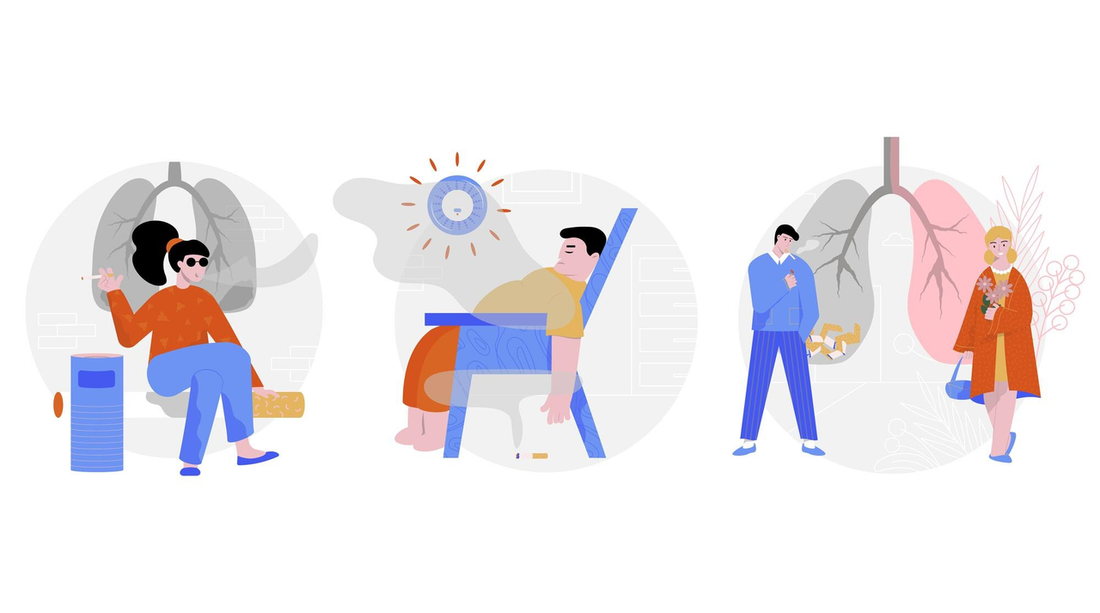Maintaining healthy lungs is crucial for ensuring that your body gets the oxygen it needs to function properly. Poor lung health can lead to a variety of respiratory issues and impact your overall well-being. Here are some effective strategies to improve your lung health and boost your respiratory function.
The Importance of Lung Health
Your lungs play a vital role in your respiratory system by bringing oxygen into your body and removing carbon dioxide. Healthy lungs are essential for efficient breathing, energy levels, and overall health. Neglecting lung health can lead to conditions like chronic obstructive pulmonary disease (COPD), asthma, and lung infections.
Tips to Improve Lung Health
1. Quit Smoking:
Smoking is one of the leading causes of lung damage and diseases such as lung cancer and COPD. Quitting smoking is the most significant step you can take to improve your lung health. Seek support from healthcare providers, support groups, and smoking cessation programs.
2. Avoid Pollutants:
Limit exposure to environmental pollutants like secondhand smoke, industrial emissions, and chemicals. Use air purifiers at home, keep your living space clean, and avoid outdoor activities when air quality is poor.
3. Practice Deep Breathing:
Deep breathing exercises can help improve lung capacity and efficiency. Try diaphragmatic breathing, where you breathe deeply through your nose, expanding your diaphragm, and then exhale slowly. Practicing deep breathing for a few minutes each day can strengthen your lungs.
4. Stay Active:
Regular physical activity helps improve lung function and overall cardiovascular health. Activities like walking, running, swimming, and cycling can boost your lung capacity and efficiency. Aim for at least 30 minutes of moderate exercise most days of the week.
5. Eat a Balanced Diet:
A nutritious diet supports overall health, including lung function. Foods rich in antioxidants, vitamins, and minerals can help protect your lungs from damage. Incorporate fruits, vegetables, whole grains, lean proteins, and healthy fats into your diet.
6. Stay Hydrated:
Drinking plenty of water helps keep the mucous lining in your lungs thin, making it easier to breathe and expel mucus. Aim for at least 8 glasses of water a day.
7. Avoid Infections:
Respiratory infections can cause significant damage to your lungs. Protect yourself by practicing good hygiene, getting vaccinated against flu and pneumonia, and avoiding close contact with sick individuals.
8. Practice Good Posture:
Good posture allows your lungs to expand fully when you breathe. Avoid slouching and practice exercises that improve your posture, such as yoga and Pilates.
Exercises for Better Lung Health
1. Aerobic Exercise:
Engage in activities like brisk walking, jogging, cycling, and swimming to improve your lung capacity and efficiency.
2. Strength Training:
Incorporate strength training exercises to improve overall muscle tone and respiratory function.
3. Breathing Exercises:
Practice specific breathing exercises such as pursed-lip breathing and belly breathing to enhance lung capacity and control.
4. Yoga:
Yoga combines physical postures, breathing exercises, and meditation, all of which can improve lung function and respiratory health.
Preventive Measures for Lung Health
1. Regular Check-Ups:
Schedule regular check-ups with your healthcare provider to monitor your lung health and catch any issues early.
2. Vaccinations:
Stay up-to-date with vaccinations, particularly those that protect against respiratory infections like the flu and pneumonia.
3. Avoid Occupational Hazards:
If you work in an environment with potential respiratory hazards, use protective equipment and follow safety guidelines to reduce exposure.




